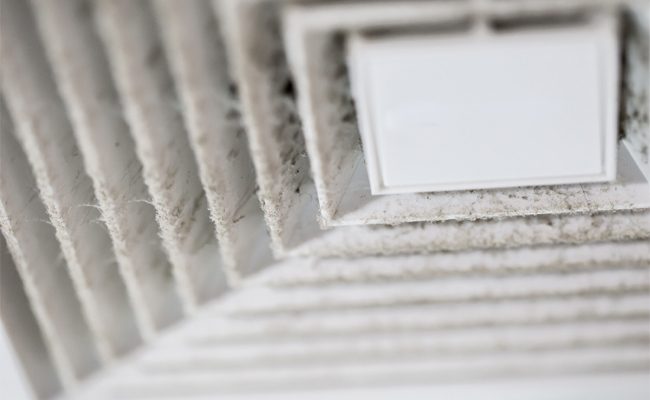
Your AC ducts continually serve their purpose, hiding behind the ceilings and walls. Ducts are everywhere, including your basement, attic, and residential chambers. However, remaining out of your sight shouldn’t throw them out of your mind! Defective ducts in your AC adversely affect indoor air quality. Besides, they can lead to various health concerns. This explains why professionals like Direct Air Conditioning prioritize routine air duct cleaning services.
How do clogged or dirty ducts affect indoor air quality?
The ducts on your AC are susceptible to blockages upon consistent use. Once they develop clogs and accumulate dirt, it negatively impacts indoor air quality. Check out how dysfunctional air ducts affect the quality of the air you breathe.
1. Excess operational pressure
Your AC experiences excessive air resistance due to clogged air filters. As a result, your cooling unit would toil harder. When the operating pressure increases, more contaminants enter the ductwork through cracks. Therefore, foreign elements in the crawlspace or your attic make their way into the airstream. Over time, these foreign components form a coating over the internal parts of your AC, resulting in poor air quality.
2. Growth of mould on ducts
Under highly humid conditions, the ductwork at your home should remain clean. Dirty and moist ductwork is the home to mould and mildew. This biological growth leads to the circulation of spores in the conditioned air. Eventually, you would experience allergic symptoms like irrigation in the eyes, throat, and nose. Besides, prolonged exposure to spores and moulds can even damage your lungs.
3. Poor humidity control
Well, the function of your AC extends beyond cooling your interiors. When you think of the perfect climate-control mechanism, you need to consider the humidity-control abilities of your unit too. With dysfunctional or clogged air ducts, your AC would fail to control the indoor air humidity. This would also feed spores and mould.
Besides, oversized ACs already have short cycles. With the return ducts drawing additional moisture from the damp interiors, you would experience perpetual mould problems indoors.
4. Circulates dirty indoor air
In an optimally functional AC, the return and supply ends of the duct need to be well-balanced, with the same amount of air. However, ducts with leaks allow the air to escape on the supply side. As a result, the system suffers from a negative pressure formation.
Now, in order to equalize this pressure, the system would draw in air from cracks and gaps in the outer covering. As a result, the air gets contaminated by particles coming in through your attached garage, crawl garage, or basement. Eventually, the indoor air becomes dirty, leading to respiratory issues.
5. Backdrafting
Although Backdrafting is not too frequent, dysfunctional air ducts can lead to a lethal situation indoors. This is a condition when the appliance fails to eliminate toxic gases like carbon monoxide. A malfunctioning duct can suck these toxic gases in. Due to the negative air pressure, these gases can find their way back to your home. Inhaling toxic gases can lead to adverse health conditions.
What impact can dysfunctional air ducts have on your health?
The indoor air quality has a direct impact on your health conditions. A dysfunctional duct in your AC makes you susceptible to a wide array of ailments. This is why established HVAC experts like Direct Air Conditioning recommend regular maintenance for your system. Let’s look at the common health issues you might face due to dysfunctional ACs.
1. Respiratory diseases
Respiratory diseases occur when you continually inhale polluted or contaminated air. Particularly, if you are a heavy smoker, your lungs are already susceptible to these elements. Dirty ducts circulate pet dander, dust, pollen, and other contaminants in the indoor air. These elements, along with spores, can lead to respiratory diseases. To name a few ailments, you can have pneumonia, tonsillitis, laryngitis, and influenza.
2. Itchy or dry skin
With contaminated air circulating in your interiors, you can experience skin dryness. Besides, it can lead to rashes, hives, and eczema. When the air in the ducts carries moisture, it can condense pollutants. Along with high humidity, these pollutants can cause skin irritation. So, when you reach out to the HVAC experts, make sure they install a dehumidifier.
3. Sinus problems
Dirty and clogged air ducts easily catch debris and contaminations. As the conditioner works, these elements can quickly get into the indoor air. They get even into the nasal passages all the way to the sinus, which has thin skin. So, when the external particles get into the nasal passage, you can get a sinus infection. This can cause sinus pressure, drippy nose, phlegm, and pain in your face.
4. Fatigue and tiredness
Well, you might feel tired or low without having any serious health issues. It might be due to the lack of pure air indoors. This happens when you are working for a long time.
Your system must continually fight pollutants and bacteria, stressing your immune system. Ultimately, this would leave you low, and you would end up getting sick frequently. Fatigue can also pacify the aging process.
5. Dizziness
The number of volatile organic compounds (VOCs) and particles in the indoor air determine its quality. Although some particulate matter turns out to be harmless, certain VOCs like pet dander, skin cells, and insect droppings can be harmful. Besides, there are gases released by different liquids and solids like air fresheners and aerosol sprays. When you inhale these VOCs in large amounts, you might encounter dizziness.
Endnote
As you observe, dysfunctional air ducts can lead to problems beyond the functional aspects of your AC. As a responsible homeowner or business head, you wouldn’t like your family members or staff to suffer from these health issues. This justifies why HVAC experts like Direct Air Conditioning recommend cleaning the ducts during their routine maintenance services. With a perfectly functional AC, you can restore the purity of your indoor air.
Leave a Reply